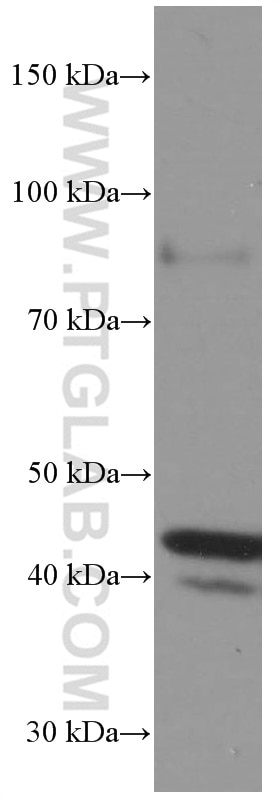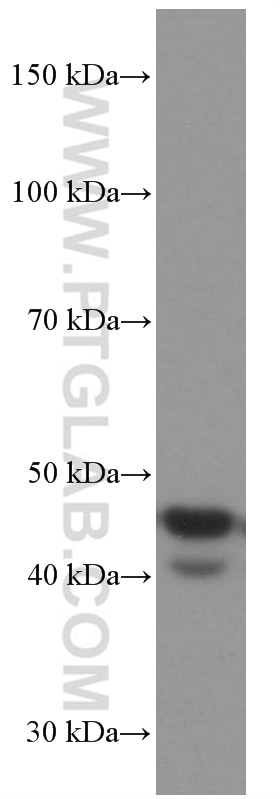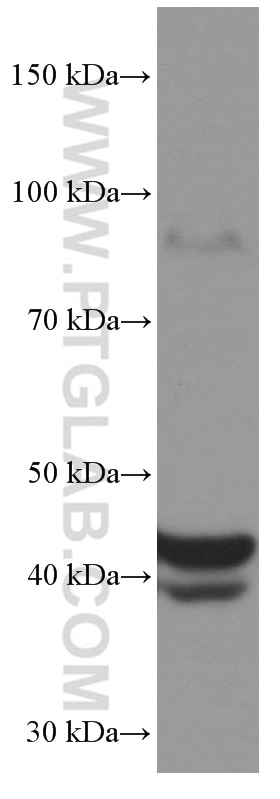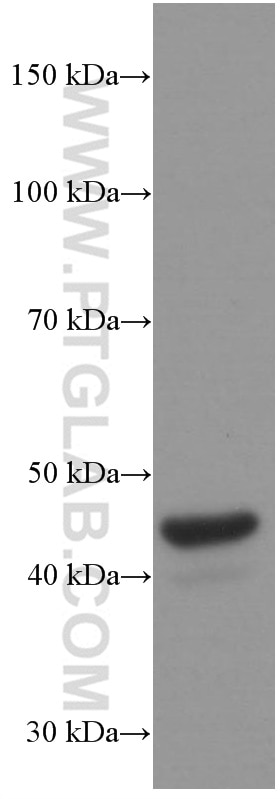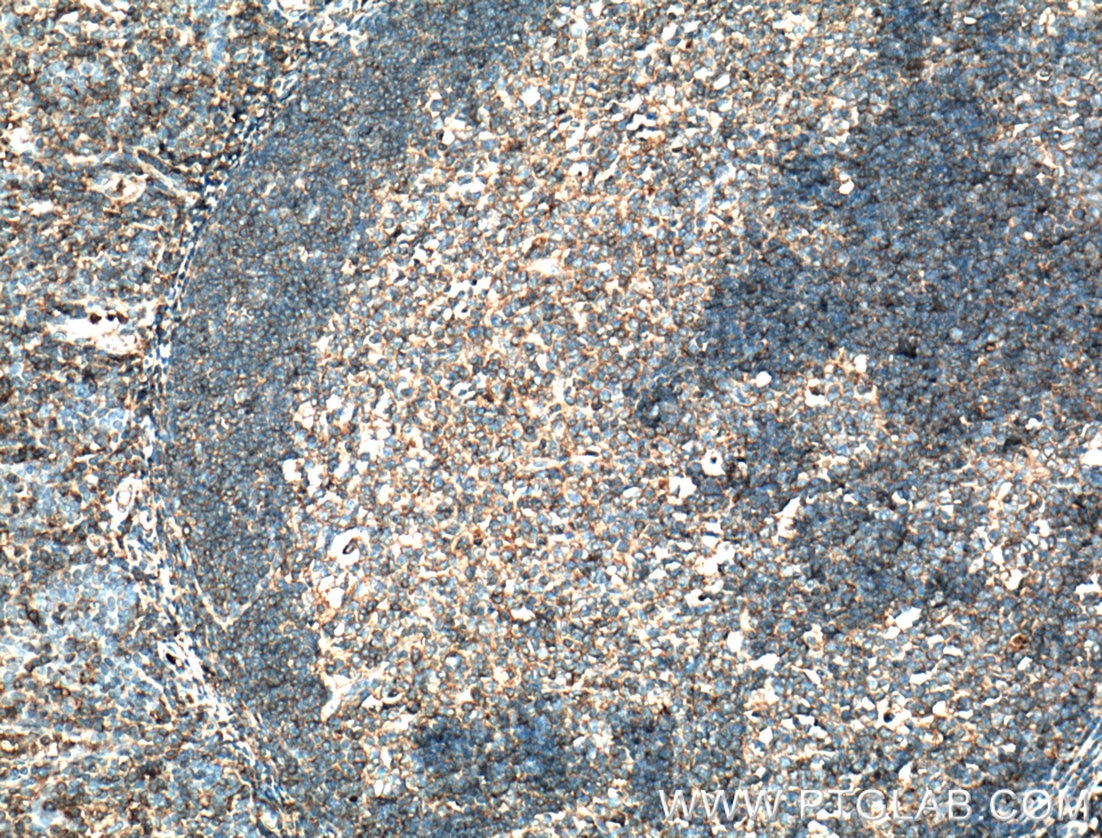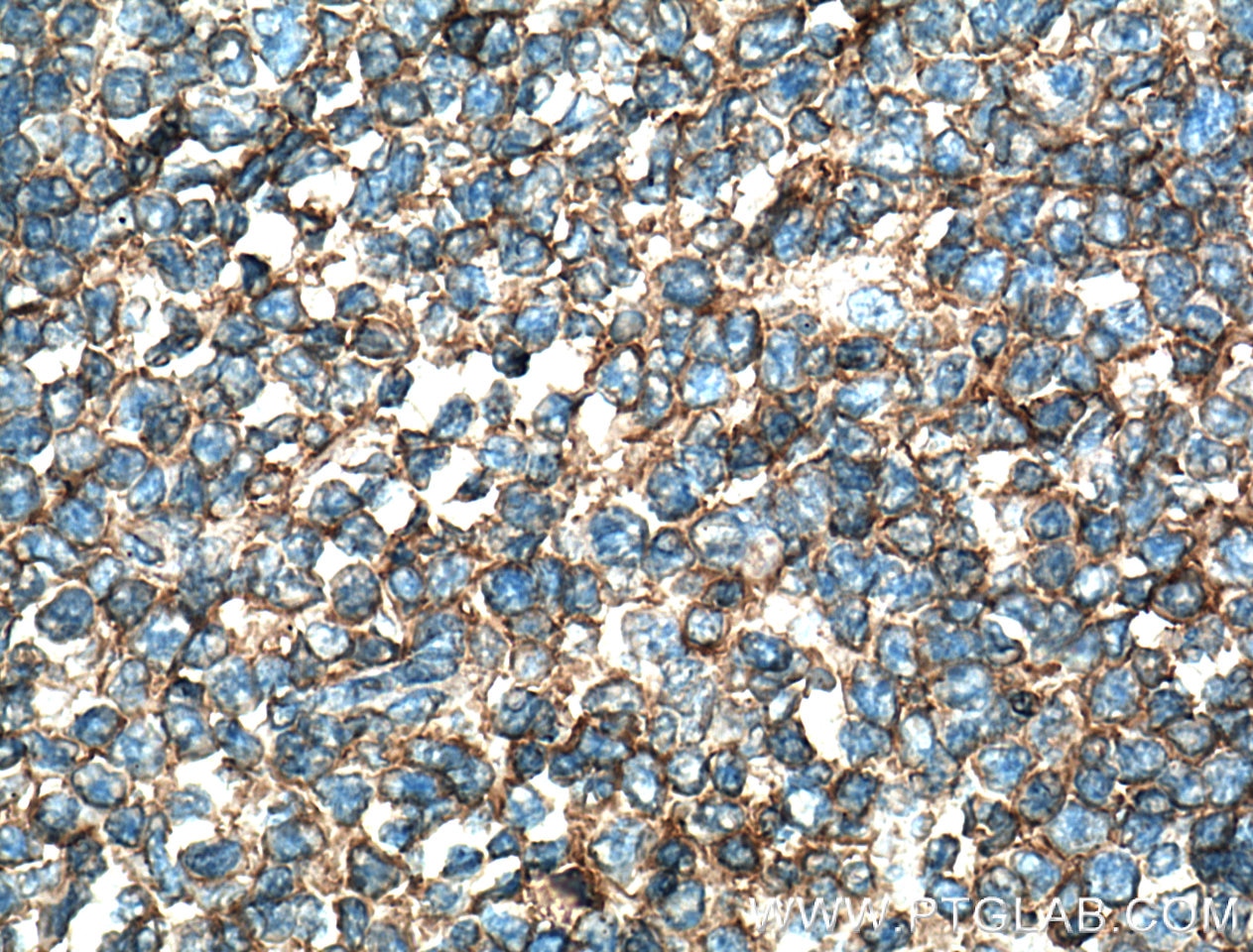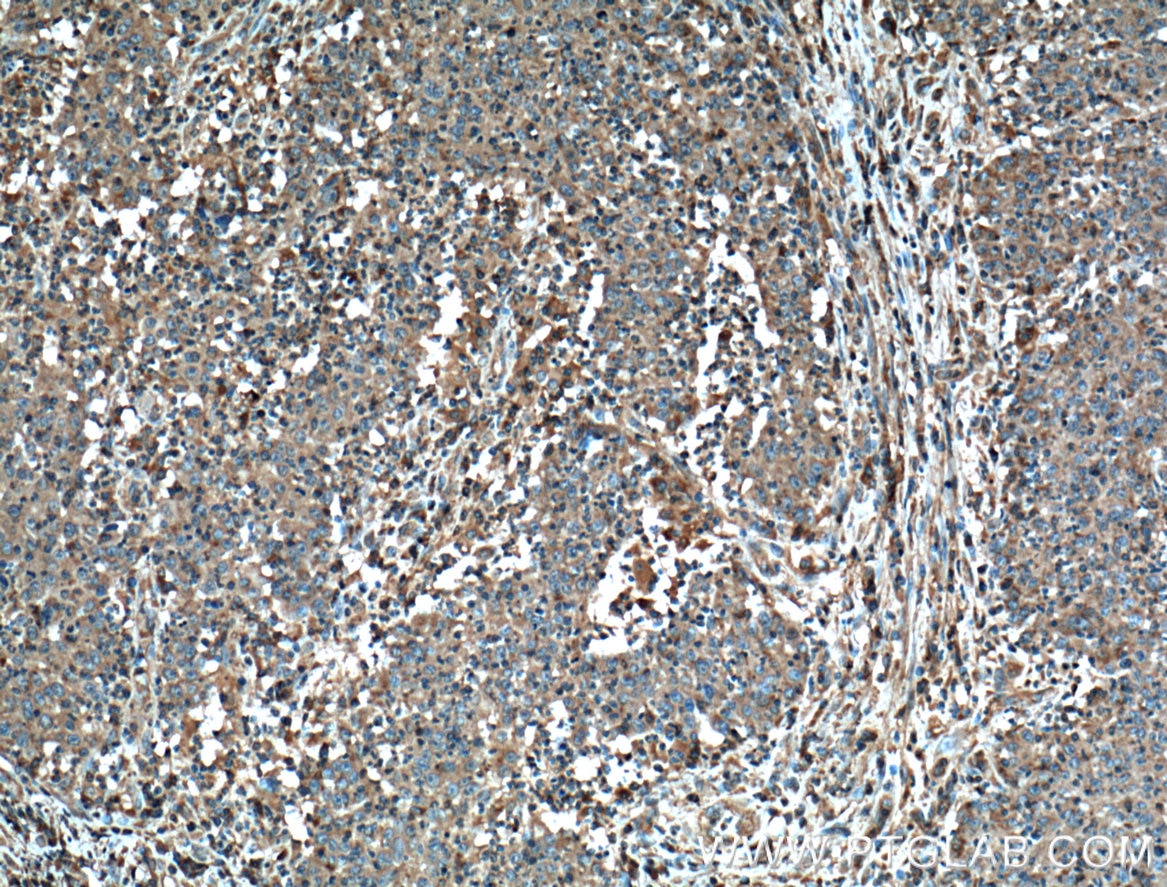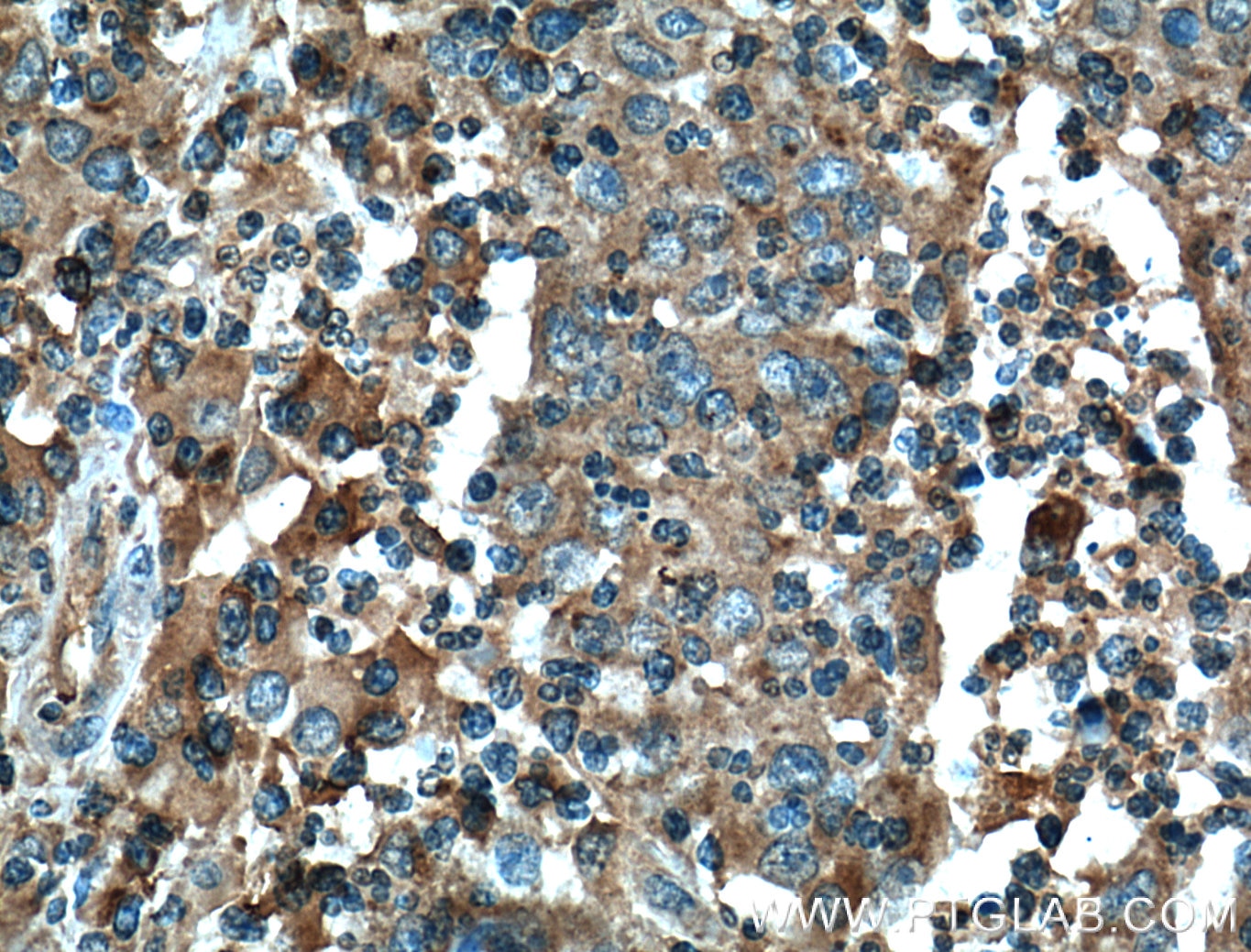- Featured Product
- KD/KO Validated
Fas/CD95 Monoklonaler Antikörper
Fas/CD95 Monoklonal Antikörper für WB, IHC, ELISA
Wirt / Isotyp
Maus / IgG1
Getestete Reaktivität
human und mehr (1)
Anwendung
WB, IHC, IF, ELISA
Konjugation
Unkonjugiert
CloneNo.
1G7F7
Kat-Nr. : 60196-1-Ig
Synonyme
Geprüfte Anwendungen
| Erfolgreiche Detektion in WB | Jurkat-Zellen, HeLa-Zellen, K-562-Zellen, U-937-Zellen |
| Erfolgreiche Detektion in IHC | humanes Tonsillitisgewebe, humanes Kolonkarzinomgewebe Hinweis: Antigendemaskierung mit TE-Puffer pH 9,0 empfohlen. (*) Wahlweise kann die Antigendemaskierung auch mit Citratpuffer pH 6,0 erfolgen. |
Empfohlene Verdünnung
| Anwendung | Verdünnung |
|---|---|
| Western Blot (WB) | WB : 1:1000-1:8000 |
| Immunhistochemie (IHC) | IHC : 1:50-1:500 |
| It is recommended that this reagent should be titrated in each testing system to obtain optimal results. | |
| Sample-dependent, check data in validation data gallery | |
Veröffentlichte Anwendungen
| KD/KO | See 2 publications below |
| WB | See 13 publications below |
| IHC | See 4 publications below |
| IF | See 2 publications below |
Produktinformation
60196-1-Ig bindet in WB, IHC, IF, ELISA Fas/CD95 und zeigt Reaktivität mit human
| Getestete Reaktivität | human |
| In Publikationen genannte Reaktivität | human, Zebrafisch |
| Wirt / Isotyp | Maus / IgG1 |
| Klonalität | Monoklonal |
| Typ | Antikörper |
| Immunogen | Fas/CD95 fusion protein Ag3718 |
| Vollständiger Name | Fas (TNF receptor superfamily, member 6) |
| Berechnetes Molekulargewicht | 35-38 kDa |
| Beobachtetes Molekulargewicht | 38-45 kDa |
| GenBank-Zugangsnummer | BC012479 |
| Gene symbol | Fas/CD95 |
| Gene ID (NCBI) | 355 |
| Konjugation | Unkonjugiert |
| Form | Liquid |
| Reinigungsmethode | Protein-G-Reinigung |
| Lagerungspuffer | PBS with 0.02% sodium azide and 50% glycerol |
| Lagerungsbedingungen | Bei -20°C lagern. Nach dem Versand ein Jahr lang stabil Aliquotieren ist bei -20oC Lagerung nicht notwendig. 20ul Größen enthalten 0,1% BSA. |
Hintergrundinformationen
FAS, also named as CD95, APO-1, APT1, FAS1 and TNFRSF6, is a receptor for TNFSF6/FASLG. It is a cell surface receptor belonging to the TNF receptor superfamily, can mediate apoptosis by ligation with an agonistic anti-Fas antibody or Fas ligand. Stimulation of Fas results in the aggregation of its intracellular death domains, leading to the formation of the death-inducing signaling complex (DISC). FAS-mediated apoptosis may have a role in the induction of peripheral tolerance, in the antigen-stimulated suicide of mature T-cells, or both. The secreted isoforms 2 to 6 block apoptosis (in vitro). This anti-Fas monoclonal antibody can be used to induce apoptosis in cell cultures through Fas by imitating the Fas-ligand.
Protokolle
| PRODUKTSPEZIFISCHE PROTOKOLLE | |
|---|---|
| WB protocol for Fas/CD95 antibody 60196-1-Ig | Protokoll herunterladen |
| IHC protocol for Fas/CD95 antibody 60196-1-Ig | Protokoll herunterladenl |
| STANDARD-PROTOKOLLE | |
|---|---|
| Klicken Sie hier, um unsere Standardprotokolle anzuzeigen |
Publikationen
| Species | Application | Title |
|---|---|---|
Cell Neutrophil elastase selectively kills cancer cells and attenuates tumorigenesis.
| ||
Biochim Biophys Acta Down-regulation of islet amyloid polypeptide expression induces death of human annulus fibrosus cells via mitochondrial and death receptor pathways. | ||
Mol Neurobiol Ox-LDL Induces Neuron Apoptosis and Worsens Neurological Outcomes in aSAH via Fas/FADD Pathway | ||
J Physiol Biochem miR-128-3p regulates 3T3-L1 adipogenesis and lipolysis by targeting Pparg and Sertad2. | ||
iScience Loss of Adipose Growth Hormone Receptor in Mice Enhances Local Fatty Acid Trapping and Impairs Brown Adipose Tissue Thermogenesis. | ||
Chemosphere Possible involvement of Fas/FasL-dependent apoptotic pathway in α-bisabolol induced cardiotoxicity in zebrafish embryos. |
